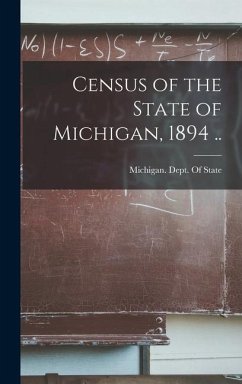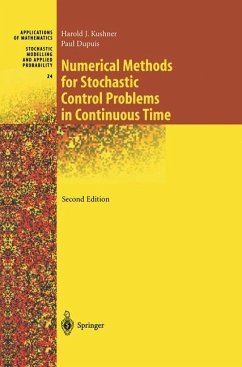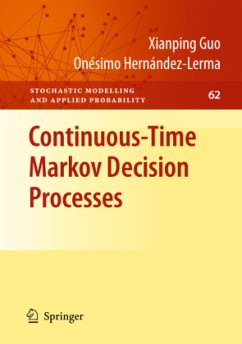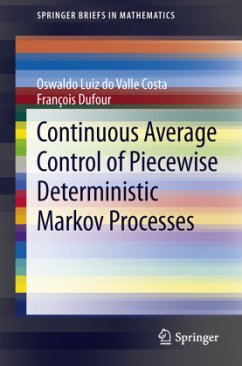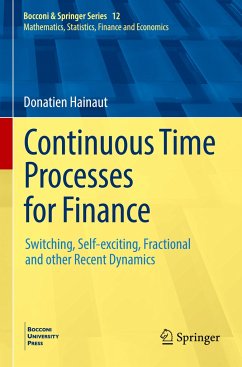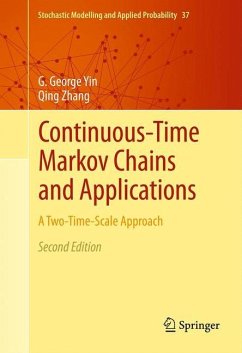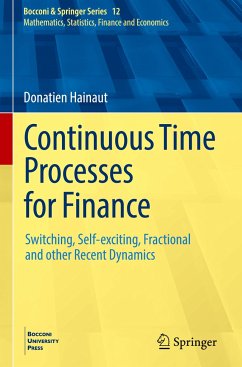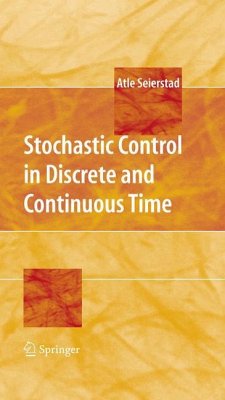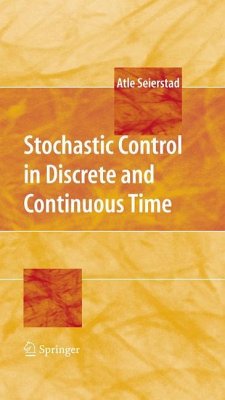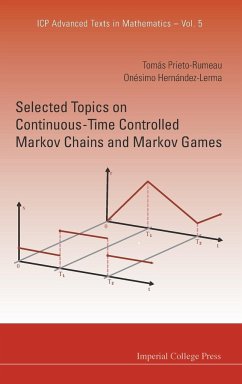
SELEC TOP ON CONTINUOUS-TIME CONTROL ..
Versandkostenfrei!
Versandfertig in 1-2 Wochen
114,99 €
inkl. MwSt.

PAYBACK Punkte
57 °P sammeln!
This book concerns continuous-time controlled Markov chains and Markov games. The former, which are also known as continuous-time Markov decision processes, form a class of stochastic control problems in which a single decision-maker has a wish to optimize a given objective function. In contrast, there are two or more decision-makers (or players, or controllers) trying to optimize its own objective function in a Markov game. Both decision-making processes appear in a large number of applications in economics, operations research, engineering, and computer science among other areas. The main fe...
This book concerns continuous-time controlled Markov chains and Markov games. The former, which are also known as continuous-time Markov decision processes, form a class of stochastic control problems in which a single decision-maker has a wish to optimize a given objective function. In contrast, there are two or more decision-makers (or players, or controllers) trying to optimize its own objective function in a Markov game. Both decision-making processes appear in a large number of applications in economics, operations research, engineering, and computer science among other areas. The main features of the control and game models studied in the book are the continuous time variable, the denumerable state space, and that the control (or action) sets are Borel spaces. Moreover, the transition and reward rates of the dynamical system may be unbounded. The authors are interested in some aspects of controlled Markov chains and Markov games such as characterizing the optimal reward functions, and determining optimal policies for each of the optimality criteria studied here. The main focus is on advanced optimality criteria (such as, bias, variance, sensitive discount, and Blackwell optimality), though they also deal with the basic optimality criteria (discounted and average reward). A particular emphasis is made on the application of the results presented in this book. One of the main concerns is to propose assumptions on the control and game models that are easily verifiable (and verified) in practice. Moreover, algorithmic and computational issues are also analyzed. In particular, the authors propose approximation results that allow precise numerical approximations of the solution to some problems of practical interest. Applications to population models and epidemic processes are also shown.






